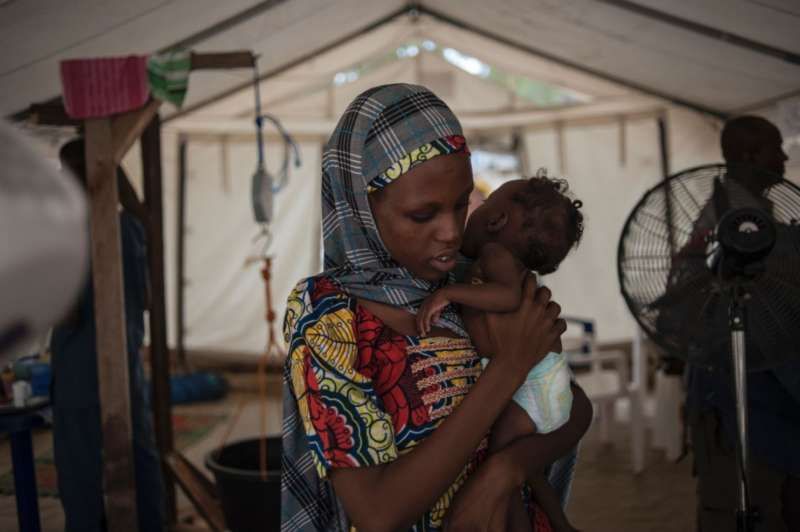
Remember when people thought that hashtag activism of #BringBackOurGirls was useless? Well, this week brought proof that sustained social media pressure can work.
On Thursday, the Nigerian government announced that 21 of the nearly 300 girls who were kidnapped by Boko Haram in 2014 had been released as a result of negotiations between the Nigerian government and Boko Haram; the Swiss government and the International Committee of the Red Cross played an active role as neutral mediators in the talks.
Former World Bank VP-turned-activist Oby Ezekwesili, who is credited with starting #BringBackOurGirls in Nigeria, said in an email, “I have been crying most of today, because it is a day of all kinds of multiple and contradictory emotions of joy, hope sadness and pain for me, personally”. When I asked her to explain further, she said, “Pain, because we as in Nigeria and the rest of the world could have saved our girls as soon as they were abducted if WE GAVE IT OUR ALL. Two, It has been a long, painful and tortuous journey to this day for me, my husband, our sons, my mom and other members of the movement for all kinds of reasons”.
Ezekwesili said she won’t give up. “Our Movement shall continue our 898 days-old demand until the remaining 187 are also rescued and reunited with their families”.
I admire the tireless campaign of #BringBackOurGirls, and as the daughter of a Nigerian mother, I was especially proud that the movement was begun by Nigerians, for Nigerians. The thousands of men, women and children who have been kidnapped by Boko Haram since 2014 should be freed from captivity, and returned to their families.
But the news of the girls’ release comes as Nigeria is facing one of the worst humanitarian crises on earth. More than 2 million people have been displaced due to Boko Haram’s carnage. Nigeria, Africa’s second-largest economy, is facing famine as a result. As the world’s media goes into a frenzy over a few hundred missing girls, some 75,000 children could die next year in the states of Borno, Yobe, and Adamawa if they do not receive food aid, according to UNICEF. The Nigerian government, according to many in the NGO and humanitarian-aid community, has been unacceptably slow in responding to the needs of those who are displaced. UNICEF has appealed for $115 million—so far it says it has received only $28 million in funds to help those most at risk for undernourishment.
I can’t help but wonder: Where is the global hashtag for Nigeria’s starving children?
Where is the social media campaign for those who are more at risk from acute hunger and malnutrition than from Boko Haram’s violence right now?
Where are the marches from angry Nigerians in Abuja, demanding that their government not allow an entire generation of Nigerian citizens who have survived Boko Haram’s violence to succumb to hunger? Where are the Africans marching in Africa’s capitals, demanding that the world find a way to get food to Nigeria’s conflict zones? Will it take a viral image of dead Nigerian children, their bodies emaciated, to get the world to pay attention? Even then, I’m not so sure it would.
I can understand why the kidnapped girls received so much international attention. From Nigeria to Pakistan, violence against women and girls is often used as a potent symbol in the fight against Islamist terror, reminders that ‘their’ form of brutality against women and children is inherently worse than our own. Famine and displacement are less sexy than the idea of secret rescue missions for young maidens trapped in terrorist dens, waiting to be rescued by a well-armed military. Not to mention, the refugee crisis and the humanitarian situation in Syria are taking front and center stage of the world’s attention right now.
The Nigerian government has been slow to acknowledge the true scale of the humanitarian emergency, instead choosing to emphasize the military campaign against Boko Haram at the expense of supporting civilians as they face displacement, disease and hunger in difficult-to-reach conflict areas. As my colleague Kevin Sieff put it, “For over a year, the United Nations and humanitarian groups dramatically underestimated the size of the disaster, and the Nigerian government refused to acknowledge the huge number of people going hungry in Africa’s second- richest nation”. Indeed, in my travels last year in Adamawa state, the early signs of famine were already there; and officials and aid groups I talked to said they had not received much support from the federal government.
Next week, a crop of governors from northern Nigeria will be in Washington to discuss dealing with Boko Haram’s root causes. The symposium, hosted by the United States Institute of Peace, will largely be closed to the media and the public. There should be pressure on the governors to be accountable for how they plan to ensure that those most affected by Boko Haram’s violence won’t starve to death over the next year.
Starving children in Nigeria can’t wait another two years for the world to act. It’s time for the world it give it our all, now. Or, abeg, can someone at the very least please start a hashtag?
Karen Attiah is The Washington Post's Global Opinions Editor.
